The actress—who has been nominated for an Oscar for her performance in Blue Jasmine—loses herself in classic novels and plays.
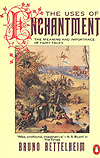
The Uses of Enchantment
By Bruno Bettelheim
I read this in drama school. It's an analysis from a psychologist's perspective of the meaning and power of fairy tales. One example that sticks in my mind is the metaphor of a child going into the forest. Bettelheim makes the point that the structure of this story parallels children's experiences in life—how you can be frightened but eventually make it through to the other side. One can feel expendable—particularly in this day and age, and especially working in film—and for me, this reinforces the power of storytelling and the necessity of it.
By Bruno Bettelheim
I read this in drama school. It's an analysis from a psychologist's perspective of the meaning and power of fairy tales. One example that sticks in my mind is the metaphor of a child going into the forest. Bettelheim makes the point that the structure of this story parallels children's experiences in life—how you can be frightened but eventually make it through to the other side. One can feel expendable—particularly in this day and age, and especially working in film—and for me, this reinforces the power of storytelling and the necessity of it.

The True History of the Kelly Gang
By Peter Carey
Carey is one of my favorite writers. The first book of his I ever read was a collection of short stories called The Fat Man in History. He also wrote Oscar and Lucinda—a beautiful story—which was turned into a film that I made. In Kelly Gang, the narrative voice is so unique. We Australians all know that outlaw Ned Kelly was hung after the famous shoot-out in 1880. But what Carey does is get inside his character's mind in such an illuminating and heartrending way. Aand there's not a trace of sentimentality in it. I so admire that as an actor, because I realize how difficult it is to do.
By Peter Carey
Carey is one of my favorite writers. The first book of his I ever read was a collection of short stories called The Fat Man in History. He also wrote Oscar and Lucinda—a beautiful story—which was turned into a film that I made. In Kelly Gang, the narrative voice is so unique. We Australians all know that outlaw Ned Kelly was hung after the famous shoot-out in 1880. But what Carey does is get inside his character's mind in such an illuminating and heartrending way. Aand there's not a trace of sentimentality in it. I so admire that as an actor, because I realize how difficult it is to do.
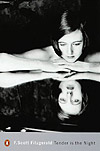
Tender is the Night
By F. Scott Fitzgerald
This novel was handed to me on a silver platter by my husband, who said, "You cannot die without reading this." I keep coming back to it because it's so detailed in recording the inner life of Dick Diver, the central character. His yearning—to save his mentally unstable wife, Nicole—just keeps unfolding. That aching is quite destructive but also so understandable. The word I think of with this story is "fragile." I was utterly struck by the fineness of Fitzgerald's writing and the timelessness of Dick and Nicole's failures.
By F. Scott Fitzgerald
This novel was handed to me on a silver platter by my husband, who said, "You cannot die without reading this." I keep coming back to it because it's so detailed in recording the inner life of Dick Diver, the central character. His yearning—to save his mentally unstable wife, Nicole—just keeps unfolding. That aching is quite destructive but also so understandable. The word I think of with this story is "fragile." I was utterly struck by the fineness of Fitzgerald's writing and the timelessness of Dick and Nicole's failures.
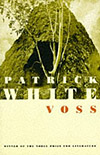
Voss
By Patrick White
Nobel Prize-winner Patrick White is one of Australia's great novelists and playwrights. This story is about Voss, a German explorer, and Laura, a young Sydney woman, who meet very awkwardly in a drawing room one hot afternoon. Voss embarks on a trek across Australia and writes her a series of letters, most of which never reach her; at the same time she writes letters he doesn't receive. It turns out that the act of expressing their true selves in the small, shut-down environment of colonial Australia allows them to fall in love. As a reader, you are in the most intimate position—privy to each one's thoughts. Voss's quest takes him through the center of Australia, which no white man has ever conquered and from which he won't return. But along this fruitless journey, he becomes more self-aware and more involved with this woman he will never meet again. It's horrible and tragic and unforgettable.
By Patrick White
Nobel Prize-winner Patrick White is one of Australia's great novelists and playwrights. This story is about Voss, a German explorer, and Laura, a young Sydney woman, who meet very awkwardly in a drawing room one hot afternoon. Voss embarks on a trek across Australia and writes her a series of letters, most of which never reach her; at the same time she writes letters he doesn't receive. It turns out that the act of expressing their true selves in the small, shut-down environment of colonial Australia allows them to fall in love. As a reader, you are in the most intimate position—privy to each one's thoughts. Voss's quest takes him through the center of Australia, which no white man has ever conquered and from which he won't return. But along this fruitless journey, he becomes more self-aware and more involved with this woman he will never meet again. It's horrible and tragic and unforgettable.
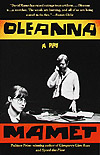
Oleanna
By David Mamet
This play represented such a turning point for me as an actor. I'd just come out of drama school and I was playing opposite Geoffrey Rush. I had to leave my own baggage at the door and take on this character who would be understood by some and hated by others. Mamet has taken all the extraneous stuff away and left you with just this searing, polemic essential battle to the death. Geoffrey and I keep saying Oleanna is an inkblot test, because your reaction to it reveals to you your own sense of politics. It's so provocative—afterward, people were shouting at one another passionately. To see that happen in the theater lobby, which can be such a bourgeois, polite space, I just knew this is what I should be doing with my life.
By David Mamet
This play represented such a turning point for me as an actor. I'd just come out of drama school and I was playing opposite Geoffrey Rush. I had to leave my own baggage at the door and take on this character who would be understood by some and hated by others. Mamet has taken all the extraneous stuff away and left you with just this searing, polemic essential battle to the death. Geoffrey and I keep saying Oleanna is an inkblot test, because your reaction to it reveals to you your own sense of politics. It's so provocative—afterward, people were shouting at one another passionately. To see that happen in the theater lobby, which can be such a bourgeois, polite space, I just knew this is what I should be doing with my life.
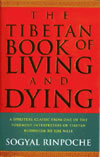
The Tibetan Book of Living and Dying
By Sogyal Rinpoche
I've been dipping in and out of this book since my early 20s. I completely respond to one of its basic notions—self-responsibility. It's about preparing for a good death, and I've found that in having a child, you're confronted by your mortality each day as the child grows and blossoms. But every single element in our Western society is a denial of death. We don't want to think about it, which compounds the terror we feel about it. This book helps one to navigate one's way through the terror.
By Sogyal Rinpoche
I've been dipping in and out of this book since my early 20s. I completely respond to one of its basic notions—self-responsibility. It's about preparing for a good death, and I've found that in having a child, you're confronted by your mortality each day as the child grows and blossoms. But every single element in our Western society is a denial of death. We don't want to think about it, which compounds the terror we feel about it. This book helps one to navigate one's way through the terror.




